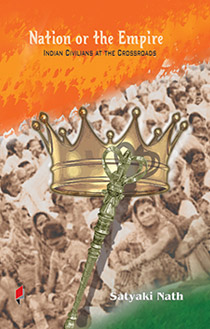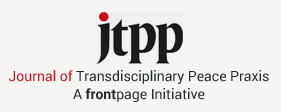Nation or the Empire: Indian Civilians at the Crossroads

- Nation or the Empire: Indian Civilians at the Crossroads
- Forced Migration & Media-Mirrors
- Still Canadian? Identity, Difference, Ethnicity and Race in the Experience of Canadian Migrants to the United States
- Voices of Internally Displaced Persons in Kenya: A Human Rights Perspective
- Human Trafficking Amidst Interlocking Systems of Exploitation: A Focus on Pakistan
Binding:HardcoverSize: 234x156 mm
Pages: 248Year:
The treatise chronicles the pioneering Indians who as members of Indian Civil Service (ICS) dared to fight against the mighty British Empire. In 1855, when the door was opened for Indians to compete for ICS, the Indian Civilians could join the ruling aristocracy which was so far a European recluse. Starting from Satyendranath Tagore in 1863, many Indians, competing under insurmountable difficulties in an alien environment joined the service. The examination was conducted only at London. Indian youths, tearing off the company of family and relatives, and overcoming the social prohibition of crossing the sea (kala pani), reached England at quite a tender age. Not only the examination curriculum was based on the English education system, low marks were assigned to Sanskrit and Arabic compared to ancient and modern continental languages. On top it worked the age regulation which was altered on a number of occasions creating further impediment for Indian candidates. At the same time, British youth fervently aspired for the Indian prize.
Set against such a background, the task for Indian candidates was immensely difficult. But equally strong was the resolve of Indian candidates who succeeded in the examination, defeating the unconquerable British youth on their own turf. The number of Indians in the service grew slowly. Successful Indian Civilians returned home with supreme confidence in their ability and reverence for British democratic institutions, pledging loyalty to the ‘Empire’ through the covenant signed prior to joining the service.
In the service, the racial discrimination, the Indians were subjected to, however, brushed off the regard for the ‘Empire’. At the same time, various invidious policies of the imperial rule tormented many of the patriotic Indian Civilians who openly criticised the colonial regulations verging on revolt. Imperial bureaucracy did not countenance this upright conduct and the dissenters’ prospect in the service suffered. This could not, however, deter nationalist Indians from responding to the call of the motherland. Circumstance was thus very clearly set out for a choice between serving the ‘Nation’ or ‘The Empire’.
Satyaki Nath, a post-graduate in Electrical Engineering from IIT, Kanpur, India works for Indian Railway Traffic Service. A passionate reader of History, he became obsessed with ‘Her Majesty’. He delved deeper, culling out information buried in old documents at different libraries in India and abroad. The intricacies of imperial bureaucracy trickled his senses. His impassivity, a bureaucratic acquisition, was severely testified while trying to understand the condition of the Indian members in the service and their conduct. Satyaki’s maiden venture is aimed at unravelling the delicate and often fragile relationship between ‘Imperial Masters’ and their ‘Indian Servants’.










